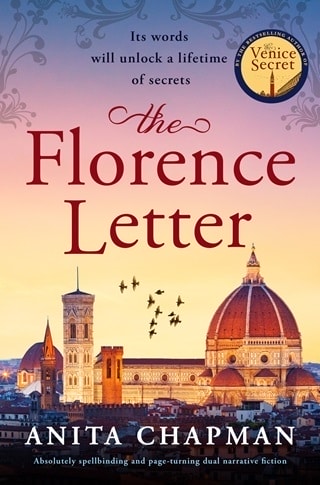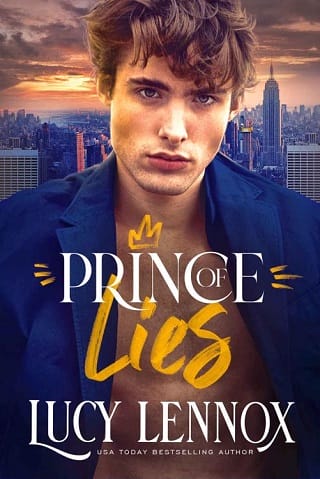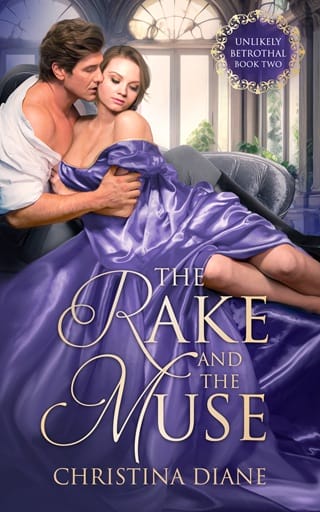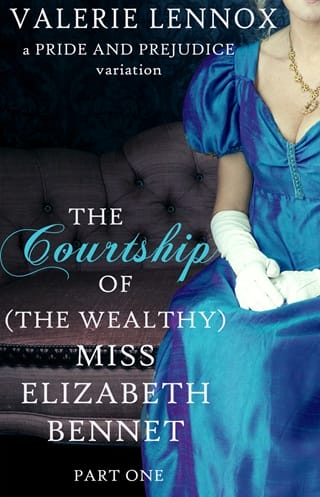Chapter 28
Aunt Edith was glad to have me return to her cottage, as Lilian had recently left to work in a munitions factory. This meant I could have the bedroom previously occupied by Lilian and would not need to sleep on the floor. I helped Aunt Edith by making meals, doing the washing up and cleaning the house, and she provided me with food and board in return. Once again, I wished that I could be working as a shopgirl rather than carrying out such menial tasks, but Aunt Edith needed me. In December a law was passed to say that women above the age of twenty who weren't married or widowed with children were to be conscripted to join one of the auxiliary services. I had turned twenty the previous summer. Aunt Edith fixed me up as a volunteer at the ATS canteen. This arrangement suited her because I could still live in and help out as required.
One evening we were established in the sitting room, listening to the news on the wireless. Aunt Edith was writing up her diary for the Mass Observation and I was darning a pair of stockings.
‘Guess who I bumped into today?' Aunt Edith said.
‘Who?' I said.
‘Sam Maxwell's mother.'
‘Sam from Gatley Hall?'
‘That's right. She used to attend your Uncle Reg's Sunday service, but she hasn't been to church much lately due to ill health. I saw her in the high street, queuing for meat at Chester's, and she told me something interesting.'
Here was Aunt Edith getting involved in gossip again.
‘Oh really?'
‘She said that Lady Violet used to meet that Italian POW chap down at the gamekeeper's cottage. Supposedly, she was painting his portrait, but Mrs Maxwell seems to think they were having an affair.'
‘Don't be ridiculous.'
‘She seemed adamant. And Sam was working at the house, as were you. Did you really not hear anything about it?'
‘Not a dickie bird,' I said.
‘She said it was all the servants could talk about for months, so I'm surprised.'
‘I spent more time with her ladyship than anyone. It's mere tattle, and I wouldn't take any notice.'
‘Well I made some calculations. You went to Seamouth for six months. Lady Violet could have been pregnant when you left, just not showing yet. Was she with child, Mags?'
‘She certainly was not.'
‘I know the official line is that she died of influenza, but it is rather unusual for a woman of her age, and in such good health as well, to die that way.'
‘Aunt Edith, what on earth are you insinuating?'
She shrugged. ‘Perhaps I'm getting carried away.'
‘You are indeed,' I said.
‘But if you knew anything, you would tell your aunt, wouldn't you? I can be trusted implicitly.'
‘As I already said, dear aunt, it's idle talk, and Mrs Maxwell is damaging the memory of my late mistress. This conversation is rather distressing, actually.'
‘I can imagine it would be. Sorry to be so insensitive, Mags.'
Aunt Edith went back to writing in her diary and I hoped she wasn't relaying our conversation. She was writing under a pseudonym but still I hoped she wouldn't go into too much detail if she did refer to her conversation with Mrs Maxwell in some way.
Sam would often pop into the ATS canteen when coming into the village and he kept me abreast of what was going on at Gatley Hall. It didn't take long for the earl to move on with a young debutante in London, Lady Sophia Wootton, the daughter of the Duke of Oxon. He planned to marry her within months. Apparently, her parents were desperate to find her a husband before all the potential suitors went off and got themselves killed. The earl's quest to produce an heir was clearly more important to him than taking a respectable length of time to grieve for his late wife.
One morning Sam told me that Luca had transferred to another farm. I was sad to hear this, and supposed he'd been unable to bear being close to Gatley Hall and the gamekeeper's cottage, filled with all those memories, after Lady Violet's death. The thought of not seeing Luca ever again did not bear thinking about, for, despite all that had happened, I still cared for him. That night before going to bed I said a prayer for Luca and hoped he'd be able to get past losing Lady Violet. If and when the war ended, he'd hopefully be able to return to Florence and marry his fiancée. I'd been reading Lady Violet's copy of A Room with a View to help me grieve, as it brought me close to her – it was such a beautiful novel – and I held on to the dream of going to Florence one day. Maybe I'd find Luca's bakery – for I knew his family name was Mancini – and we'd meet again as friends.
Mr and Mrs Willis continued to run Gatley Hall, for such a grand house needed a great deal of maintenance even in the earl's absence. I would ask Sam for updates on Tabitha whenever I saw him and noticed he'd started referring to her as Lucy. He told me that Mr and Mrs Willis preferred to use her middle name as it suited her better. Of course, I knew that her real middle name was the Italian equivalent, Lucia, but expected they hadn't told Sam this because then it might be obvious that Luca was her father. I considered what Lady Violet might think about her daughter being called Lucy and decided that she'd probably be delighted as it was after Lucy Honeychurch in A Room with a View after all. However, I would always think of her as Tabitha, after Lady Violet's grandmother.
Mr Willis started to volunteer for the Auxiliary Fire Service in the village, and spent many a night helping to put out fires created by incendiary bombs. It was difficult to think ahead, as no one knew what was going to happen. Although we did our best to lift our chins and it wasn't the done thing to talk about our doubts in public, there was an undercurrent of fear. What if the Hun succeeded in invading our small island? Aunt Edith had friends around the country who were taking German lessons, just in case. She insisted she'd never do such a thing herself because she believed that we would be victorious in the end.
My thoughts often turned to Tom and, when I looked up at the planes overhead, I'd picture him. Would he survive all the dogfights? I continued to write to him every day before updating my diary. As I dropped the letters into the postbox in the village, I would feel a small sense of achievement. There I was, doing my bit by boosting the morale of an RAF pilot. I was fortunate to be engaged to such a man, and I prayed he'd survive the war and return to me. He didn't have Luca's dashing good looks, but his determination to fight for his country was admirable and I was certain that I'd grow to love him with all my heart.
When the war ended, a party was held in Gatley High Street to celebrate D-Day. It was a joyous day, and the road was closed so we could fill it with tables and chairs and celebrate together, with everyone bringing dishes to share. I couldn't wait for Tom – my fiancé, no less – to come back and looked forward to us finding a home of our own and beginning our life together.
The earl failed to conceive a child with his new wife and, in 1945, he sold Gatley Hall to the Earl of Chiswick, who owned the neighbouring estate, Heybury House. According to Mrs Willis, the earl was in poor health, and didn't want his cousin to inherit the property passed down his family for generations. He made it a condition of the sale that Mr and Mrs Willis remain at Rose Cottage and continue to work as butler and housekeeper. He hadn't forgotten that Mr Willis was his father's batman during the First World War. Little did he know they were raising the illegitimate daughter of his late wife. A few months after the sale of Gatley Hall went through, however, the Earl of Chiswick died after a riding accident, and his son and heir passed Gatley Hall to the Association of Treasured Properties in lieu of paying inheritance tax. Mr and Mrs Willis continued to live at Rose Cottage with Tabitha and they paid rent to the ATP.
Tom and I were married at Leatherhead Register Office. I'd wanted the wedding to be at St Andrew's but, after all he'd seen during the war, he refused to get married in a church. A photographer came from the Surrey Standard, and a reporter wrote a few words about us being the love story of Gatley Hall, describing the romance that had developed when a lady's maid wrote to the chauffeur daily while he was in the RAF. This was ironic because, at the time, I still viewed Tom as a friend.
After all we'd been through during the war, Tom seemed on edge that day, and I was overwhelmed with a numb feeling. You couldn't just switch from being nervous and anxious all of the time to feeling joy. Was I making a mistake rushing into a marriage with a man I barely knew? In time, I told myself, we would be happy together. The wedding was a small affair with close family and friends. We had a couple of drinks and a sandwich buffet, and then the best man, Martin Chester, Tom's friend who Lilian had cast aside attached tin cans to the car. The memory still remained of that night at the Old Fox, but I did my best to shut it out and see my husband in the best possible light. For we had our whole lives ahead of us and I told myself it was a one off. We drove away with everyone waving, and spent the night in a run-down bed and breakfast in Brighton.
Tom took a job in a factory in Tolworth that made car parts and we lived in a flat above a newsagent in Dorking. We didn't have much money, and rationing continued; although the war was over, the country still had a lot of recovering to do.
Not long after we were married, I decided to tell Tom about Lady Violet and Luca and Tabitha. As husband and wife, we shouldn't be keeping secrets from each other. We'd conceived our first child on our wedding night in Brighton and I was a few months pregnant. One Sunday, when we'd finished eating dinner, I told him.
‘Sam informed me of the affair, but I had no idea about the baby,' he said.
‘Well, there you are. I have a brooch that Lady Violet asked me to give Tabitha on her wedding day.'
‘Let's see it,' he said.
I went to get it out of the drawer of my nightstand and handed Tom the box from Ellis and Son. He lifted the lid and studied the beautiful emerald brooch inside.
‘This will be worth a few bob. We should sell it,' he said.
‘What do you mean?'
‘We need a new car, and this would help pay for it.'
‘But Tom, I made a promise.'
‘I'm sorry, Mags, but we're married now and this is a joint decision. I'll take care of it, and don't worry, Mr Dixon will give me a good price.'
‘I really think?—'
‘All those hours I spend working hard to pay our bills, and you're here keeping house. You don't contribute a penny, and you have the nerve to say we'll give this valuable item to someone who doesn't even know of its existence. What did Lady Violet do for you exactly? You don't owe her anything.'
Working for Lady Violet had changed my life. She'd gifted me a love for reading and for that I was grateful. Escaping into books was a way of coping, of getting lost in a different world. And goodness knew, I seemed to need that now more than ever before.
‘But I said I'd like to work. In a shop, ideally,' I said.
He looked at me the way he'd looked at Ted that night in the Old Fox, and my gut lurched. His eyes were cold and hard and there was no love for me in them whatsoever.
‘Your job is to raise our children, to keep our home spick and span, to provide me with a good meal when I get home from work. It won't be long before you have a Master or little Miss Bates to look after.'
I thought about defending myself further, but it was no use. His mind was made up and I didn't like the way he was speaking to me. Keeping my mouth firmly shut, I cleared the plates and went to wash up, tears running down my face. He didn't apologise or attempt to comfort me. How could Tom take the brooch from me like that? But now I was powerless, with not a penny to my name. There was nowhere to go, even if I wanted to leave, and I was carrying his child inside me. Tom was keeping the roof over my head and, as his wife and future mother of his children, I answered to him. My only option was to find a way to accept this, using books and my diary as my friends.
Tom was ambitious, and determined for his children to have a more comfortable upbringing than the one he'd experienced. He quickly worked his way up to a senior management position, and after that became a director and then a managing director. But this responsibility took its toll. Despite having money for the first time in our lives, and a lovely four-bedroom house in Dorking with a beautiful garden, Tom worked long hours and often travelled abroad.
Due to traumas experienced during the war – he'd often wake up screaming in the night – Tom was a different man. He drank every day without fail, often starting late morning – it was quite acceptable in his company to have a drinks cabinet in one's office at work for meetings – and without a drink to lubricate his mood he'd become grouchy.
We had our daughter, Sophie, and then a couple of years later, a son, Mark. I spent a lot of time managing my husband's temperament. Often, I'd send the children upstairs while he stomped around, shouting and following me from room to room, because something had triggered his trauma – his mother's ill health, Remembrance Sunday, a war film on television. Anything could set him off. He loved our children, but showed it with lavish gifts when returning from business trips, rather than with words. I never once heard him tell Sophie and Mark that he loved them.
He had an affair with his secretary for years, and there was nothing I could do about it. Once, I confronted him and asked for a divorce. He refused to leave, and I didn't have the money to get a place of my own, so had to accept the situation. At least this meant I didn't have to sleep with him, a small compensation, as who wants to go to bed with a man after he's been shouting at you all evening?
Sometimes I'd think back to the moment when Tom and I first met at Gatley station, when he picked up my clothes from the platform. He'd seemed like such a charming, kind chap. Although there were moments early on that I should have taken as warning signs, such as when he almost punched Ted. The temper was always there, simmering beneath the surface, but his wartime experiences brought it out even more.
The children grew up and Sophie emigrated to Australia and married a doctor after she went there to work as a nurse. Mark moved to Aberdeen and worked in the oil industry. I'm sure they both just wanted to get away from their father.
So eventually it was just me and Tom. I tried to look after him as best I could, but he had a big appetite and ate junk food at work and when away on business. He liked his butter and cream and red meat and his heart did not. He continued to drink and smoke too, even though the doctor told him it was putting a terrible strain on his heart.
As the years passed, my dream of going to Florence didn't come to fruition. Tom wasn't keen on holidays because he'd done his fair share of travelling during the war and he went on a lot of business trips. He had no inclination to go abroad with me. My way of coping with this disappointment was to sign up to an Italian class. It took place at a local primary school on Thursday evenings. Our teacher, Signora Mariella Dessi, was a lovely lady and created a happy environment for her students. We'd get into groups and do role-plays about asking where the bank was, buying a coffee, going to the dentist.
It was in this class that I met Nathan Anderson. I was attracted to him from the moment he walked into that classroom. He took the chair next to me and proffered a hand as he introduced himself.
I shook it, and said, ‘Pleased to meet you, Nathan. I'm Mags,' as I found myself getting lost in his kind chestnut eyes.
He was married with two daughters of similar ages to my children – we were both in our sixties then. Nathan and I hit it off instantly.
With both of us being married, I had to push any prospect of romance out of my mind. I found myself daydreaming about him quite a lot of the time, though, especially when performing mundane tasks such as ironing and hoovering. We'd all go to the pub opposite the primary school, the Mighty Goat, after class, remaining there until closing time. Those evenings were the highlight of my week and I started to plan my outfits in advance in order to impress Nathan. Sometimes, I'd even book my hair appointment on a Thursday. The classes only ran during term-time and, in the holidays, I missed this opportunity to socialise, and to see him. Nathan and I signed up to the class over and over again. Many students did the same as Signora Dessi was likeable and fun, as well as an excellent teacher.
Nathan and I became firm friends, and then we began what one might call an emotional affair. In the Mighty Goat, we'd always sit next to each other, and he'd buy me a vodka and tonic, always remembering to ask for ice and a slice of lemon, along with his pint of lager. Often, we'd share a bag of roasted peanuts or salt and vinegar crisps. We'd talk to the other students across the table, but mostly he'd ask me about my life, and I would ask him about his. During those hours spent in the pub, we got to know every last detail about each other. His marriage was an unhappy one. He was a history teacher at the local secondary school and his wife taught physical education. Any love they'd had for each other had dissipated long ago, but they remained together, staying out of each other's way most of the time when at home and sleeping in separate rooms. He suspected that his wife had been sleeping with the head of P.E. for years, as they spent a lot of time together on school ski trips and attending away matches together for hockey and football. She would go and stay with her sister, who lived on the Costa del Sol, during school holidays, leaving him alone in the house, and he told me that he was exceptionally lonely.
In turn, I confided in Nathan about my life with Tom and his mood swings, and asked for advice on how I could help him. Nathan had been in the army and fought in Tunisia. He'd been captured and made a prisoner of war, but somehow escaped. Having experienced similar traumas to Tom, Nathan empathised, but he'd found a way to deal with the feelings that at times overwhelmed him: he would write them down in a diary; and he'd been working on a memoir for years. This helped soothe the pain, a form of self-therapy. I'd done something similar myself, of course, during those difficult wartime days. I found it admirable that Nathan managed his emotions in a mature way, enabling him to live more of a normal life than Tom. He liked to have a pint or two of lager in the pub but didn't use alcohol to numb his pain, and he had stopped smoking after the war.
One evening, Nathan told me that he and his wife had separated. She'd upped and left to live with her sister in Spain, and was running exercise classes for expats. And then he said, ‘Mags, I've loved you for years, and now Sarah has left I'm available, if you'll have me.'
His words warmed my insides. I'd longed to hear them for some time. However, with Tom's deteriorating health – he'd had two heart attacks by then and a triple bypass – I couldn't exactly abandon him, despite his infidelity. And so, despite the prospect of having happiness within my grasp, I declined Nathan's offer. I told him that, maybe one day when Tom wasn't around anymore, we could make a go of it – if he'd still have me. But for now, I needed to be there for my husband.
 Fullepub
Fullepub 



